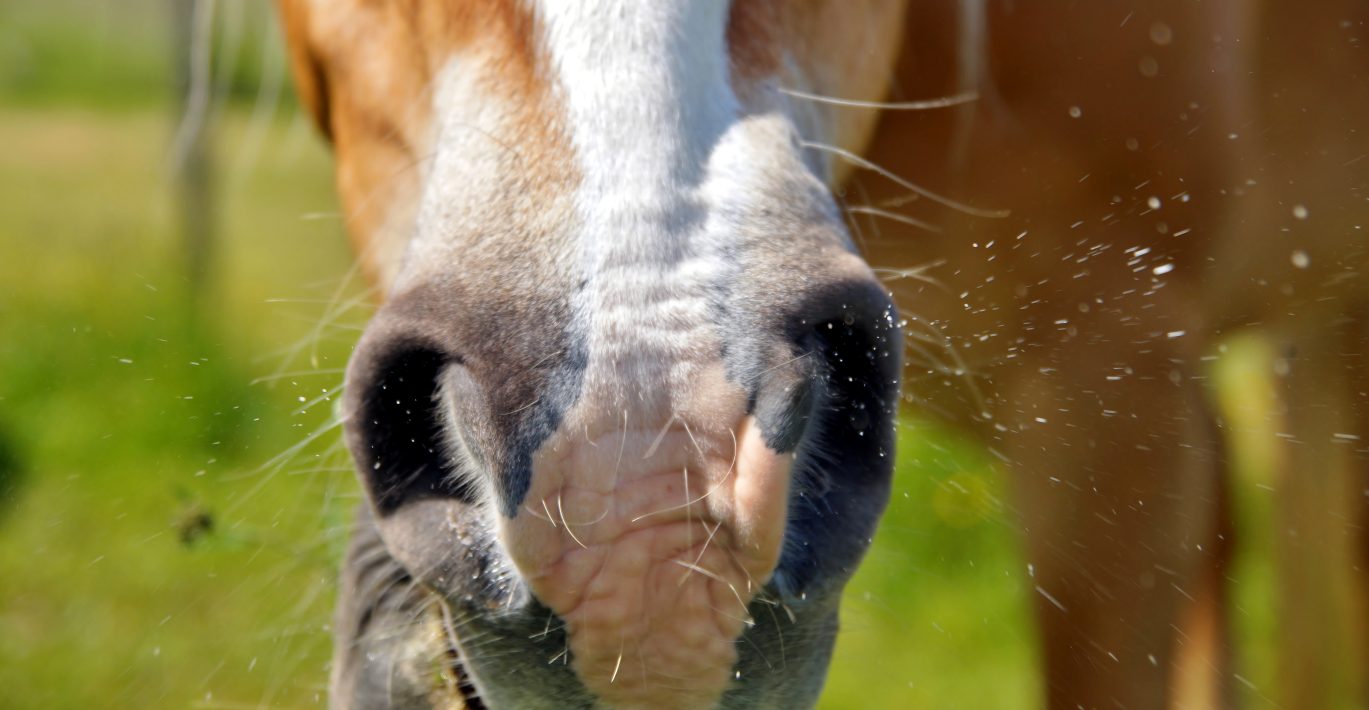
Strangles in Horses
Strangles is one of the most common infectious diseases diagnosed and can affect any horse.
What is Strangles in horses?
Strangles is one of the most common infectious diseases diagnosed and can affect any horse. The disease is caused by a bacteria called Streptococcus equi.
The name ‘Strangles’ refers to the restricted airway caused by swollen lymph nodes, which can make it difficult for horses to breathe.
How do horses get Strangles?
Strangles is not spread through air, however an infected horse can spread the disease when a horse snorts or coughs.
It can be spread directly through horse-to-horse contact.
It can also be spread indirectly through contaminated equipment, handler clothing and boots.
Be mindful that strangles bacteria can survive up to six weeks in water, so it’s important to practise basic hygiene. If you take your horse away from its usual yard, make sure to bring your own source of water that you can trust.
Strangles symptoms
It normally takes between 3 to 21 days after the horse has been in contact with the strangles bacteria for signs to develop. However, there have been cases where it has taken up to 28 days to manifest.
Typical symptoms include:
- Temperature above 38.5°C is often the first sign. If you notice your horse has a high temperature above 38.5°C, immediately isolate the horse to help prevent the spread of disease.
- Thick and discoloured nasal discharge
- Lowered head and neck
- Coughing
- Lethargy
- Loss of appetite and thirst
- Swelling of glands under the jaw between the head and neck.
The swelling of glands may lead to abscesses. These abscesses usually burst into the horse’s guttural pouches and then drain out through the nostrils.
Atypical symptoms include:
Not all horses will show the same symptoms. Some horses may only show signs such as:
- A mild fever
- Other forms of nasal discharge
- A slight loss of appetite
Whilst atypical strangles may go unnoticed, infection can still spread. If you notice your horse showing mild signs, it’s better to be safe than sorry. We recommend isolating your horse and contact your vet for advice.
What to do if you think your horse has Strangles?
It can be a worrying time if you believe your horse has contracted strangles. Stay calm and take the following steps:
- Isolate the horse(s) affected
- Call your vet
- Contact owner(s) of any horses, ponies and donkeys in contact with the affected horse.*
- Monitor other horses for signs of infection – remember, it can take up to 21 days for a newly infected horse to show signs of illness.
- Spread the word, not the disease – tell people such as your farrier, other suppliers visiting your yard and any nearby equine property.
*Any member of the equine family – horses, ponies and donkeys of all ages – can be affected by Strangles so if your horse has been in contact with them, you must let their owners know.
How to treat Strangles?
Where multiple vet practices are involved, vets will often work together to put a plan in place for the whole yard and designate a lead vet to ensure clear communication.
Treatment for your horse affected by strangles will mainly involve nursing and supportive care, which your vet can advise you on.
Most horses recover from strangles in 3-4 weeks.
Do not remove horses from isolation just because their symptoms have gone. Strangles bacteria can spread for around 6 weeks after signs of infection have gone, sometimes longer.
To find out if your horse is no longer infected and safe to remove from isolation, you must test them. Your vet will provide advice on when to test and what type of test to do.
Prevention & testing for Strangles?
When you get a new arrival to your yard or stables, test them for strangles. Your vet will be able to advise whether you need a guttural pouch endoscopy or a blood test.
In Scotland, you can have your horse vaccinated against strangles to reduce the chance of them becoming infected or reduce the severity of the symptoms they experience.
Please keep in mind that the vaccine should not be a replacement for good hygiene practices and disease prevention measures. If you’re uncertain whether or not to have your horse vaccinated, please speak to your vet to see if it’s suitable for your circumstance.
Make sure the horse you buy or adopt has been screened for Strangles
Whether buying or adopting a horse, make sure they have been appropriately vetted to make sure they’re happy and healthy. This should include being vaccinated against flu and tetanus, passported, microchipped and screened for strangles.
Adopt with the Scottish SPCA for peace of mind
All horses and ponies adopted through the Scottish SPCA have been screened for strangles before going to their forever home. Find a horse in need of a loving home today.